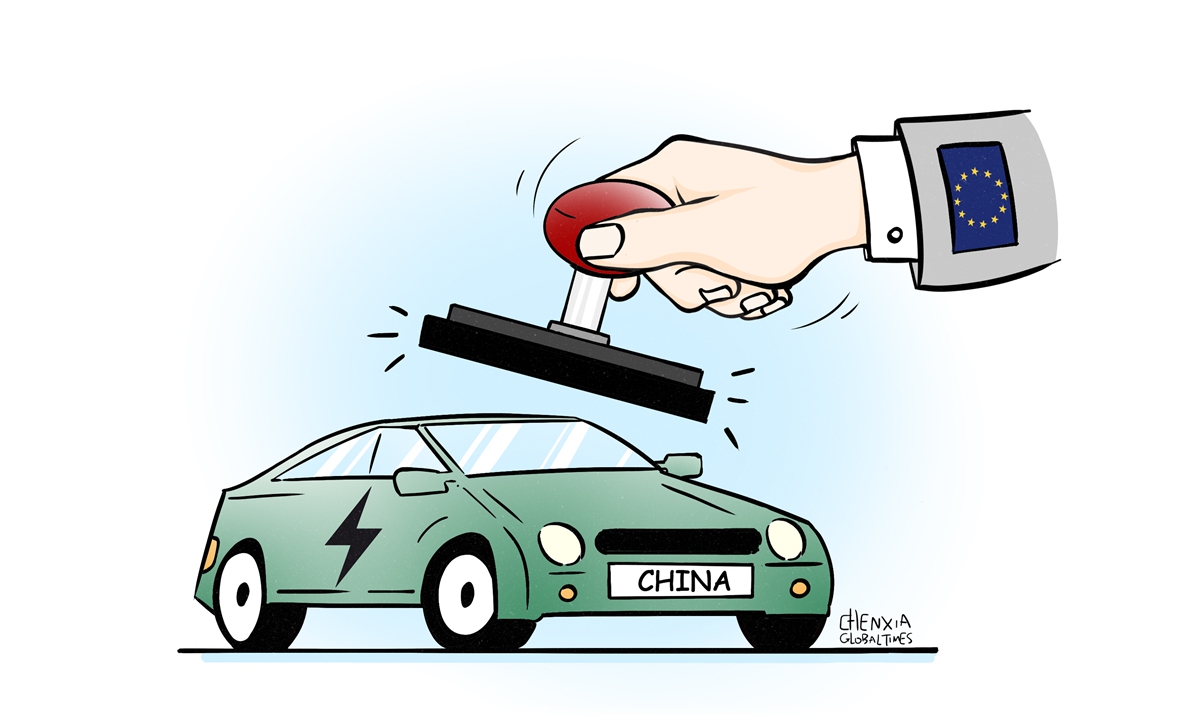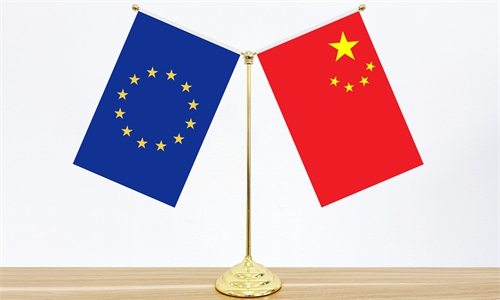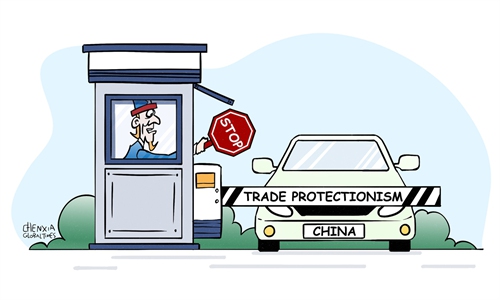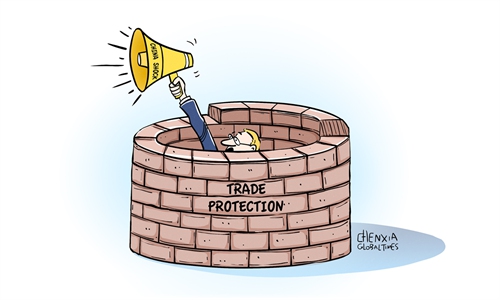
Illustration: Chen Xia/Global Times
If EU policymakers plan to register Chinese electric vehicle (EV) imports as reported, they should think twice before taking action. Customs registration will inevitably deal a heavy blow to market confidence, and bring losses that are hard to calculate for the bloc's green transformation efforts.Reuters reported on Wednesday that the European Commission (EC) plans to start customs registration of Chinese EV imports. According to the report, registration will start the day after the plan is published in the EU official journal, which is likely to be in the coming days.
If the report is true, the move can be seen as a typical trade protectionism practice as it disrupts the global trade order, and violates international rules as well as basic economic laws. It needs to be corrected in a timely manner before import registrations cause actual damage to the market and industry chains.
Last year, the EC launched an anti-subsidy investigation into imports of battery EVs from China. If the EU announces customs registration for Chinese EVs before the anti-subsidy investigation ends, it will undoubtedly undermine market confidence.
At the very least, it is too early for the EC to discuss whether to start customs registration, because its investigation has yet to be concluded. Otherwise, it will raise suspicions that EU officials and politicians, with no factual basis or the conclusion of an investigation, have adopted the presumption of guilt rather than the presumption of innocence against Chinese EV imports.
According to Reuters, customs registration means China's EVs may be hit by EU tariffs from the point when they are registered if the EU trade investigation later concludes that they are receiving "unfair subsidies." Although the report has not yet been confirmed, it is clear to everyone that if the EU takes a more aggressive stance toward China's EVs, a strong tendency of protectionism will not have a positive effect and may even escalate the conflict.
China's Minister of Commerce Wang Wentao in February said that China is highly concerned about the trade remedy investigation targeting Chinese EVs and other products, while also expressing strong dissatisfaction regarding the investigation, which lacks a factual basis.
Hopefully, the EU can heed China's voice so as to prevent a further escalation of the situation.
Subtle new trends have emerged recently in the EU, once an unwavering supporter of free trade. More measures have been taken to protect the EU's internal market from external competition. With the rise of trade protectionism in the EU, efforts to isolate itself from competition in the rest of the world have expanded to many fields such as EVs, photovoltaic products and wind turbines, sparking criticism from supporters of free trade. Some analysts can't help but ask: will the EU close its doors?
It is believed that the EU doesn't want to close its doors to international competitors, because the negative impact on the economy is obvious. If the EU builds a fence blocking out affordable foreign products and trying to give local companies an unreasonable competitive advantage, then an increase in the prices of final consumer goods will be transmitted to European consumers.
More importantly, EU companies will become more and more reluctant to promote technological development and innovation as a result. The European economy will lose its vitality.
We believe European policymakers have the strategic wisdom to prevent this from happening. More efforts are needed to restore market confidence. That's why we suggest that the EU should curb trade protectionism, provide a fair business environment for Chinese enterprises, and avoid registering Chinese EVs for potential additional tariffs. It is the only way the EU can maximize its own economic interests.
The author is a reporter with the Global Times. bizopinion@globaltimes.com.cn



